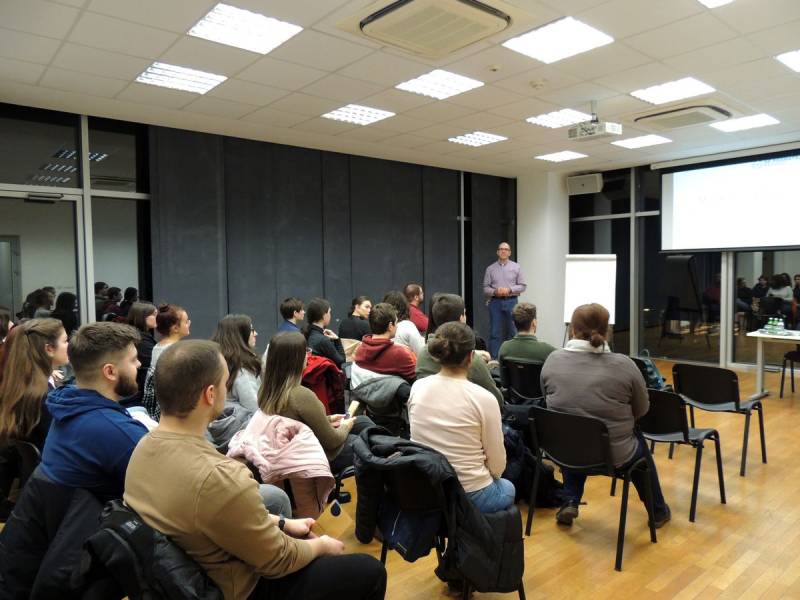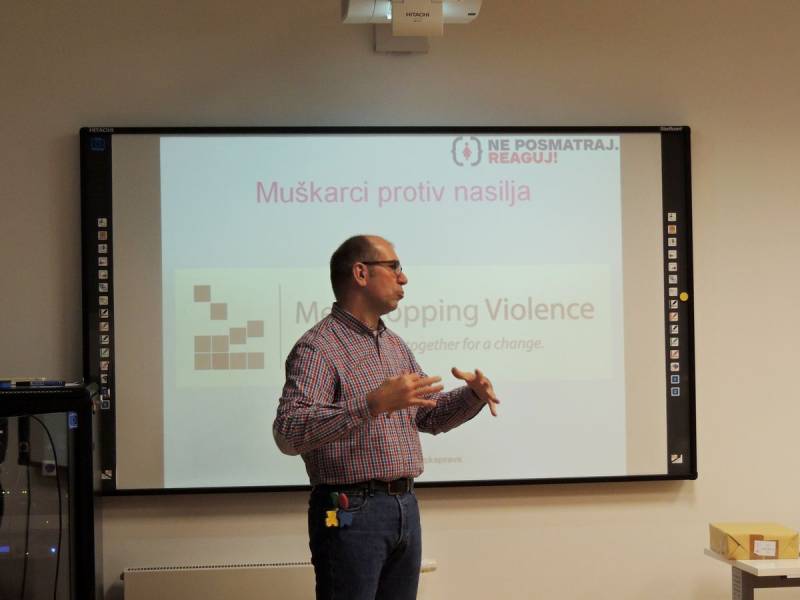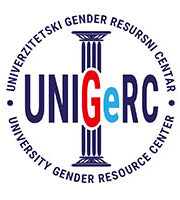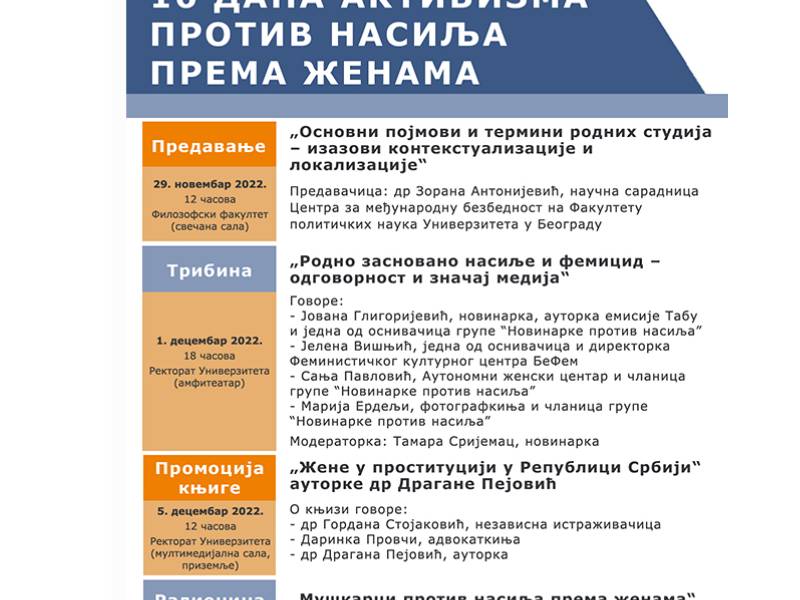The campaign “16 Days of Activism for gender equality” at the University of Novi Sad began with the lecture “Basic concepts and terms of gender studies – challenges of contextualization and localization”, followed by the panel discussion “Gender-based violence and femicide – responsibility and importance of the media”, the promotion of the book “Women in Prostitution in the Republic of Serbia”, and the workshop “Men against violence against women” were organized. The activities were carried out with the aim of raising awareness of gender-based violence and the importance of preventing femicide, as part of the UNIGEM project implemented by the TPO Foundation in partnership with 19 universities from BiH and the region, including UNS, with the financial support of the United Kingdom Government.
The lecture on “Basic concepts and terms of gender studies – challenges of contextualization and localization” was held on 29.11.2022. by Ph. D. Zorana Antonijević, research associate of the Center for International Security at the Faculty of Political Sciences, University of Belgrade, in the ceremonial hall of the Faculty of Philosophy. The lecturer gave an overview of the most significant challenges that researchers face when transferring concepts and terms from other languages, primarily English as the dominant language in this scientific field, and the ways in which these challenges are overcome. When it comes to adopting certain terms of gender studies and feminist practices from other languages, contextualization, and localization (translation of computer operating systems into local languages while respecting the specificity of the environment in which the operating system will be used) are of great importance. The lecture was followed by questions from the audience and a discussion.
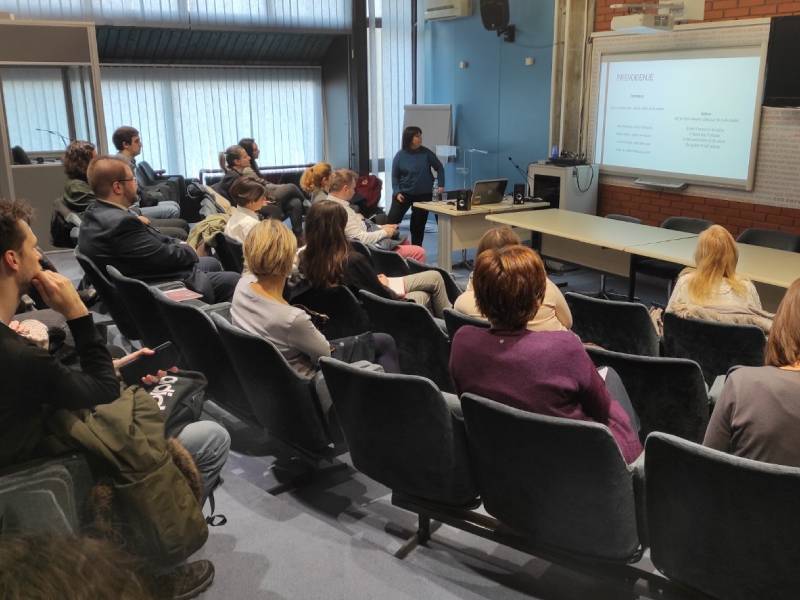
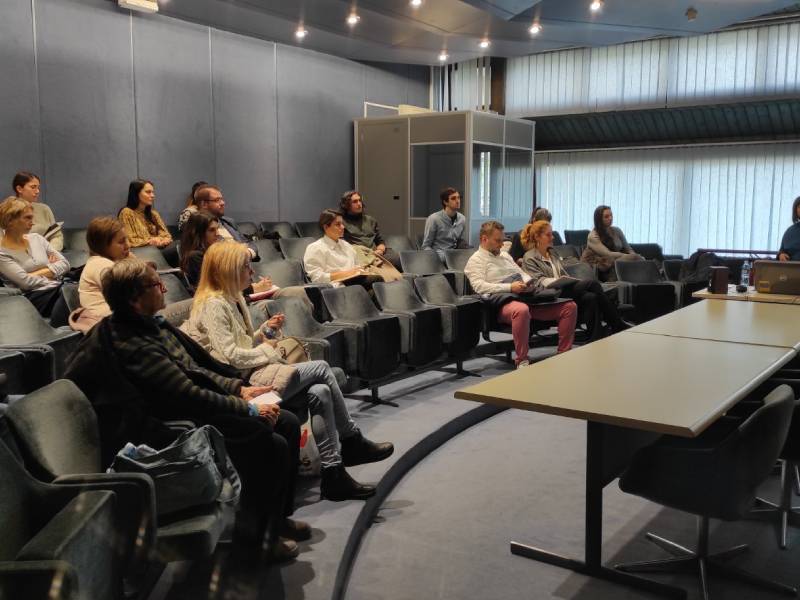
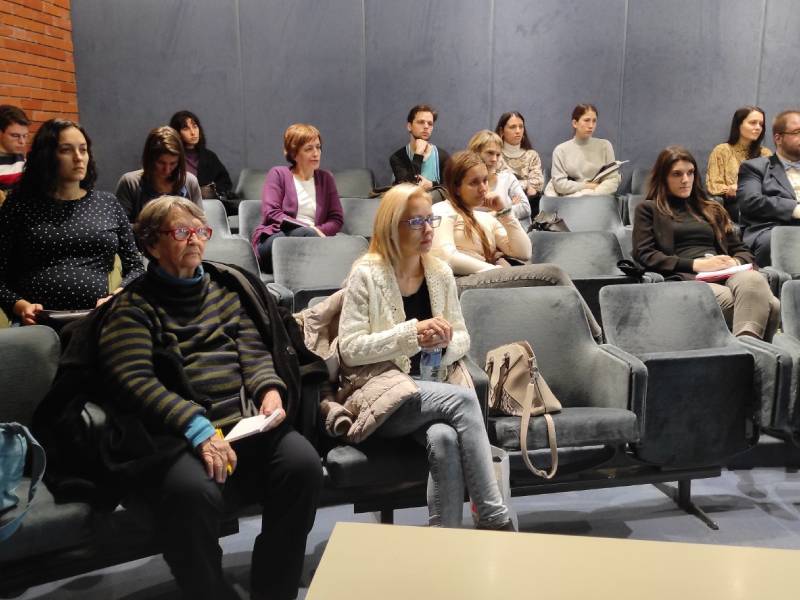
The focus of the forum “Gender-based violence and femicide – responsibility and importance of the media”, was held on December 1st at the UNS Rectorate, and there was a discussion about the media and ethical reporting on femicide and violence. About gender-sensitive reporting, the consequences that unethical journalism has on women, methods of reporting that motivate victims to report violence, and the position of female journalists dealing with these topics, the following spoke: Jovana Gligorijević, journalist, author of the show “Taboo” and one of the founders of the group ” Journalists against violence”, Jelena Višnjić, one of the founders and director of the feminist cultural center “Befem”, Sanja Pavlović in front of the Autonomous Women’s Center and member of the group “Journalists against violence”, and Marija Erdelji, photographer and member of the group “Journalists against violence”. The forum was moderated by journalist Tamara Srijemac. The importance of this topic is particularly illustrated by the fact that, according to media reports, 22 women were killed by partners in Serbia from January to September 2022. However, there is no official register of femicides in Serbia, so it is assumed that the number is much higher, but the cases did not reach the media. On the other hand, the media is still the only source of information about the number of women killed and gender-based violence, which is why they have a big role.. In addition to the role of informing, and educating, there is also a side that is reflected in unethical media reporting, which often causes great damage. The analysis of the group “Journalists against violence” showed that in the period 2019-2021. media published more than 36,000 titles about violence against women, during which 40% of publications violated the ethical rule of revealing the identity of victims or family members.
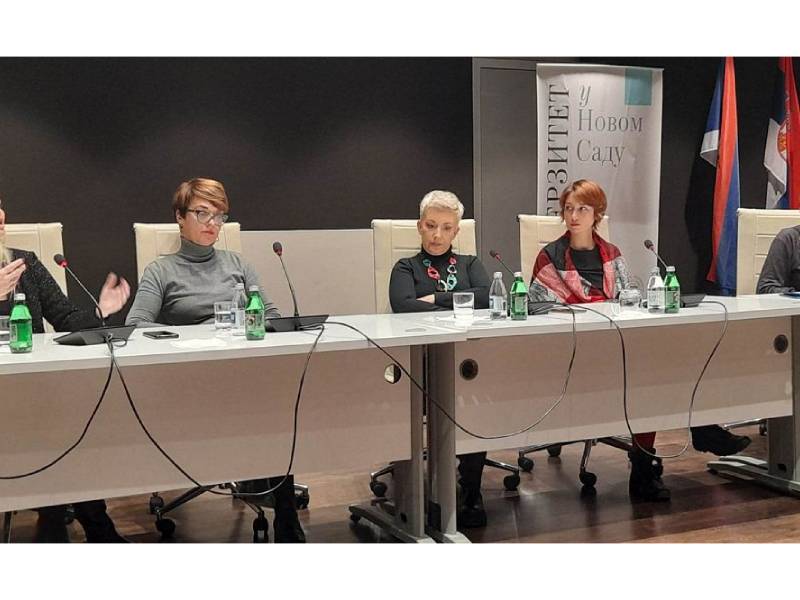
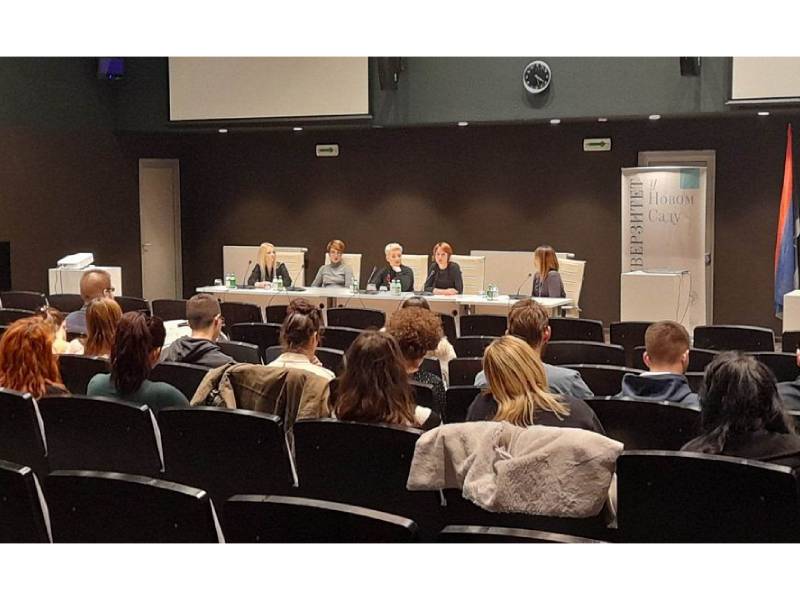
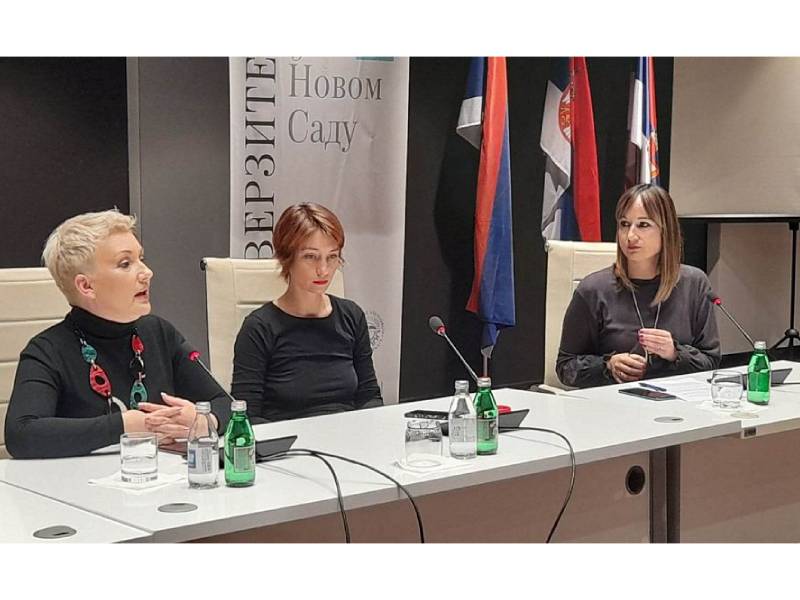
Promotion of the book “The Position of Women in Prostitution in the Republic of Serbia” by Ph.D.. Dragana Pejović, was held at the UNS Rectorate on December 5, 2022. The following spoke about the book: Ph.D.. Dragana Pejović, author, and Darinka Provči, lawyer, while the conversation was moderated by Gordana Lalić-Krstin, assistant professor at the Faculty of Philosophy of UNS and executor of the Committee for Gender Equality of the UNS. The book problematizes the position of women engaged in prostitution in Serbia. The author investigates prostitution from a gender perspective because prostitution is considered as a female profession. Thus, it pays special attention to the causes that influence a woman to choose prostitution as a profession. By entering prostitution, a woman acquires the identity of a prostitute, which marks her life in all aspects. The author’s focus is on the legal aspect of the position of women in prostitution, which is regulated by law as an offense against public order and peace. The legal position of women investigates prostitution in Serbia in the light of the legal solution, as well as through the treatment of members of the police and courts towards women engaged in prostitution.
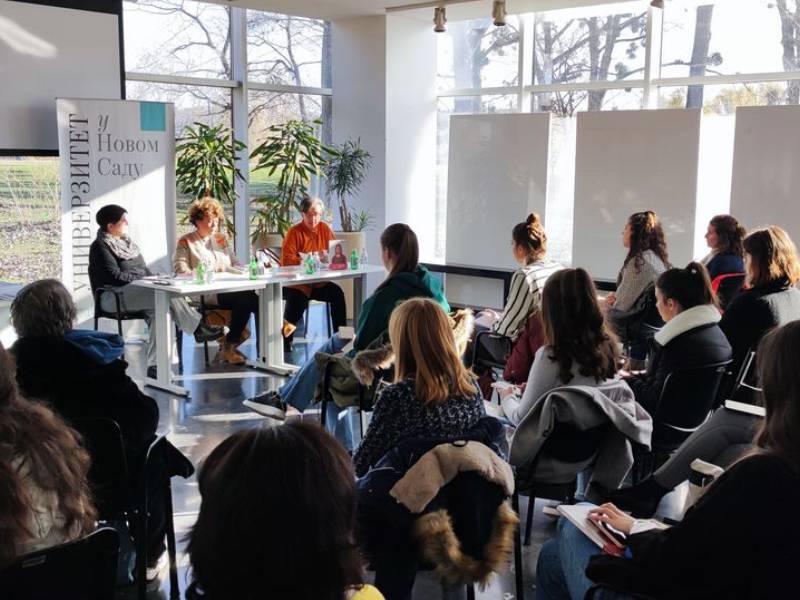
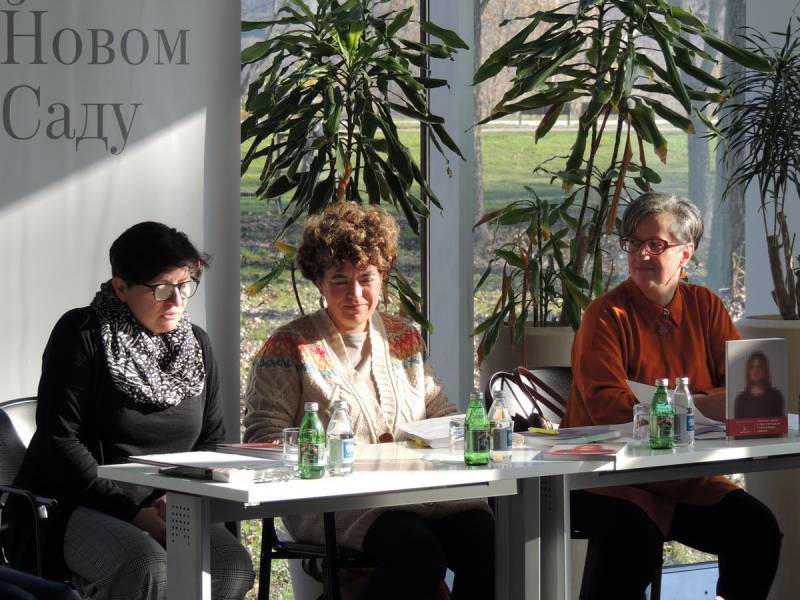
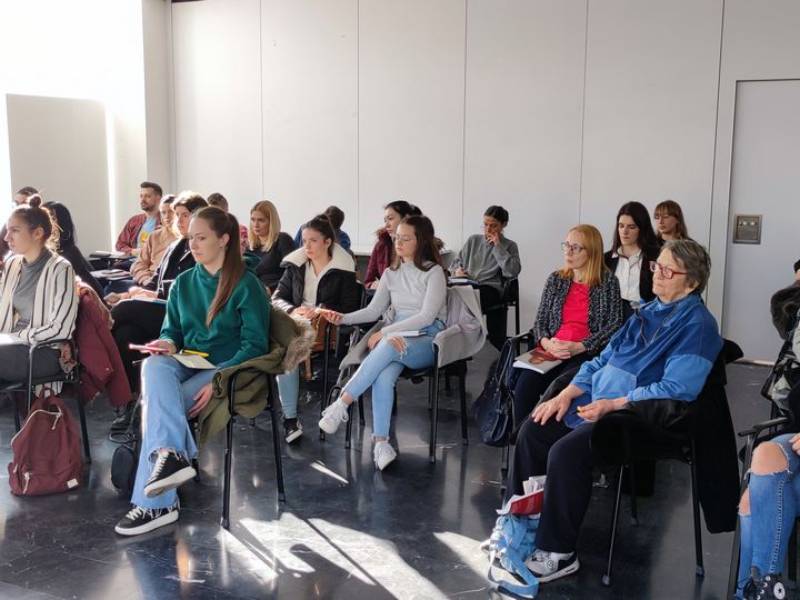
The commemoration of the Campaign was rounded off with the workshop “Men against violence against women”, which took place on December 8th in the multimedia hall of the UNS Rectorate. The workshop was led by Miloš Ćajić, from the organization “Don’t watch. React!”. It was especially emphasized that for years women were leaders in the fight against violence, but today more and more men are also joining and supporting this important social issue. Men can contribute to stopping violence by influencing other men, especially boys, and by their positive examples and engagement point to the fact that this problem affects society as a whole, as well as that it is necessary to change social norms in order to build a society of equality without violence.
